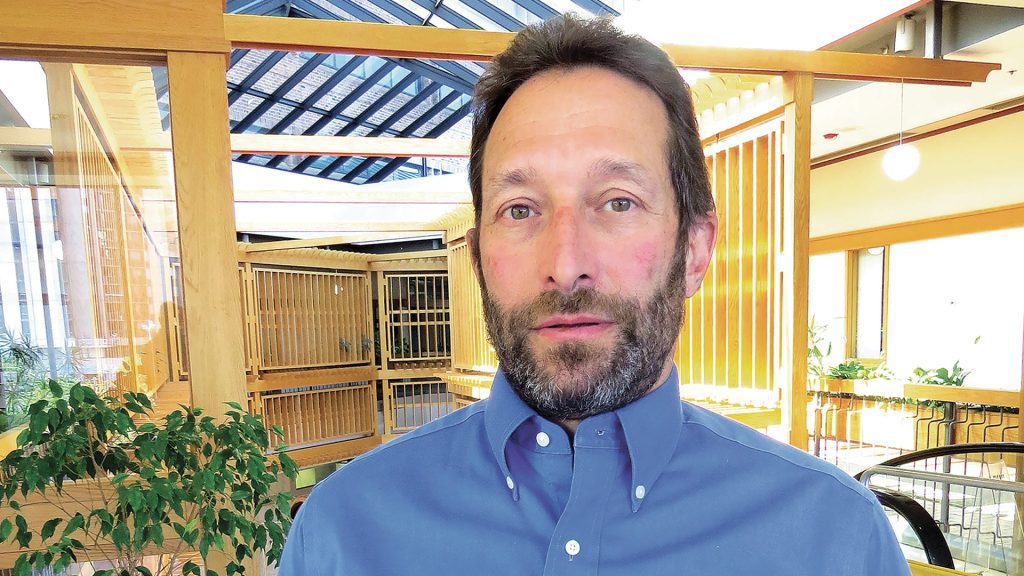
Federal Law Continues to Pose Problems for Cannabis Industry
The Constant Disconnect

Scott Blumsack is a general manager of Society Cannabis Co., a licensed retailer, wholesaler, and producer of cannabis products in Massachusetts. He oversees 16 full-time employees and directly serves cannabis products to customers.
He filed for Chapter 13 bankruptcy, which enables individuals with regular income to develop a plan to repay all or part of their debts over time. But the U.S. Bankruptcy Court for the District of Massachusetts denied his repayment plan and dismissed his bankruptcy case.
Why? Because, while Massachusetts law permits the retail distribution of marijuana, it’s still a Schedule I controlled substance, illegal to manufacture, dispense, or possess under federal law. And when Blumsack petitioned for bankruptcy under Chapter 13, he sought to fund his plan with income from his $75,000-a-year job with Society.
Judge Elizabeth Katz agreed with the Bankruptcy Court that, because he is employed in a federally illegal activity, Blumsack could not access Chapter 13 to restructure his finances.
“This banking act has been proposed by bipartisan senators for the last six, seven, eight years, and this is the first year it made it through committee; it’s supposed to get a vote on the Senate floor.”
“There’s just an enormous disconnect between what’s allowed under Massachusetts law and what’s allowed under federal law, and the Blumsack case is a perfect example of this,” said attorney Steven Weiss, a shareholder with Shatz, Schwartz and Fentin in Springfield.
“He was dealing with a controlled substance; that’s where his income was coming from,” he went on. “This guy is doing something that’s perfectly legal in Massachusetts, and yet he’s barred from being entitled to federal bankruptcy relief.”

Steven Weiss says he’s surprised lawmakers haven’t moved more quickly toward decriminalizing cannabis on the federal level.
Weiss said Katz, who had taken an oath to uphold federal law, essentially found no way around this nagging disconnect between state and federal law. The case, which has made waves nationally, is being appealed.
This disconnect has thrown a number of wrenches into cannabis businesses, which, among other hurdles, grapple with an onerous tax burden since they can’t write off many of the costs other businesses can. Or, a driver with federal Department of Transportation certification could conceivably lose that license if he transports products across state lines. And attorneys have worried about taking on clients in the cannabis sector, as they are technically advising clients to break federal law.
“Even for me, as a bankruptcy trustee, what would happen if someone suggested I should be appointed trustee or receiver of a marijuana-based business? I don’t know if I could do that, even though it’s legal under Massachusetts law,” Weiss said. “If there’s a change in the presidential administration and someone decides they’re going to enforce the marijuana laws, and there’s a five-year statute of limitations on selling marijuana, am I now a dealer?”
Then there’s banking; most cannabis companies have been all-cash businesses because banks operate under federal statutes.
“The vast majority of Americans live in states with laws that depart from federal law on this issue and where thousands of regulated Main Street businesses are serving the legal cannabis market safely and responsibly.”
But that’s one area that could be changing.
Last month, the U.S. Senate Banking Committee approved the Safe and Secure Enforcement and Regulation (SAFER) Banking Act. The legislation (see story on page 40) would allow financial institutions to do business with the legal cannabis industry without fear of crossing federal banking regulations.
“This banking act has been proposed by bipartisan senators for the last six, seven, eight years, and this is the first year it made it through committee; it’s supposed to get a vote on the Senate floor,” said attorney Scott Foster, a partner with Bulkley Richardson in Springfield. “It’s not law yet, and it may not even get through the House, but you’re definitely seeing little steps moving this forward.”
Meanwhile, the U.S. Department of Health and Human Services (HHS) recently issued an official recommendation to the Drug Enforcement Administration calling for marijuana to be moved from Schedule I to Schedule III status in the federal Controlled Substances Act.
A Schedule I classification is reserved for substances with no accepted medical use and a high potential for abuse, while a Schedule III classification is reserved for substances having a legitimate medical use and a moderate to low potential for physical and psychological dependence.
Despite this difference, cannabis would still be considered a controlled substance, illegal without a valid prescription, so a reclassification wouldn’t change the law around adult-use cannabis — but it would be a small move in that direction.

Scott Foster says the disconnect between federal and state laws have contributed to making cannabis “a challenging place to be. It’s not for the faint of heart.”
“Moving cannabis to Schedule III could have some limited benefit, but does nothing to align federal law with the 38 U.S. states which have already effectively regulated cannabis for medical or adult use,” said Aaron Smith, CEO of the National Cannabis Industry Assoc. “The only way to fully resolve the myriad issues stemming from the federal conflict with state law is to remove cannabis from the Controlled Substances Act and regulate the product in a manner similar to alcohol.”
Will the federal government ever do that? Stay tuned.
Green Wave
Laws to make cannabis legal for adults have passed in 23 states as well as the District of Columbia, and 38 states have laws regulating medical cannabis. Almost 80% of Americans live in a state where the substance is legal in some form.
“The vast majority of Americans live in states with laws that depart from federal law on this issue and where thousands of regulated Main Street businesses are serving the legal cannabis market safely and responsibly,” Smith said. “It’s long past time for Congress to truly harmonize federal policy with those states.”
And there has been some thawing around the edges of the state-federal disconnect. For one thing, more banks, and larger ones, are edging into the cannabis sector.
For example, calling it an underserved industry, Berkshire Bank recently launched a cannabis banking unit that provides tailored banking solutions for businesses. In a partnership with Green Check Verified, a cannabis compliance software company, Berkshire is promising clients a seamless integrated platform that includes an application process, transaction monitoring, compliance, and funds movement.
Foster said he spoke with an executive at Berkshire Bank only 18 months ago who doubted such a move could happen. “They went from ‘absolutely not’ to ‘our doors are open to cannabis.’ That’s a huge shift for a major bank in the region.”
And as more states come around to legalizing cannabis within their borders, there might eventually come a tipping point that lawmakers in Washington, D.C. can’t ignore.
Foster happened to be on a plane recently with a state senator from South Carolina, and they struck up a conversation about their respective jobs.
“He said, ‘we’re considering legalizing medical cannabis in January. Don’t you see a lot of crime?’ I said, ‘No.’ ‘Homelessness around dispensaries?’ ‘No. Quite the contrary.’
“I told him, ‘you’ve got people in your state right now who are growing cannabis. They’re very good at it. They know their stuff. They know the different strains. In my state, those people are employed at cannabis dispensaries. They have respectable jobs, they’re not underground, there’s no risk of them going to jail. In your state, they still can.’”
Weiss told BusinessWest he’s surprised at the lack of movement on decriminalizing cannabis at the federal level, if only because there’s so much money to be made by banks and other businesses that typically have the ear of lawmakers.
“It’s legal in 38 states. Even small banks are looking at opportunities to make loans or investments in the marijuana business,” he said. “And when Wall Street can make money on something, the law will change. That may be a cynical view of the world, but I’m sort of surprised that marijuana hasn’t become at least quasi-legal federally right now. Right now, the way the industry is operating, the government just turns a blind eye to it.”
Until someone like Blumsack gets caught in the crossfire, or until cannabis business struggle under the weight of much higher business costs and much greater challenges than other sectors when it comes to real estate, transportation, security, or any number of other factors.
“I don’t know all the ways that’s going to shake out,” Weiss said. “That inconsistency is a problem for everybody. If somebody wants to change the law, that’s up to Congress.”
A Congress that, if anyone hasn’t noticed, doesn’t like working in a bipartisan way on very much these days.
The Next Generation
The landscape on some of these matters may still shift. Foster cited a recent decision from the U.S. Bankruptcy Court for the Central District of California in which a cannabis business, the Hacienda Co. LLC, was able to obtain bankruptcy protection, but only after transferring its cannabis assets to a third party. “The decision by the court could be seen as a roadmap for other companies seeking bankruptcy protection,” he noted, “but only for a complete liquidation, not a restructuring.”
Meanwhile, Foster believes federal decriminalization is coming … eventually.
“We still have octogenarians running parts of the government, and they grew up with ‘drugs are bad,’ and that’s something that’s difficult to overcome,” he told BusinessWest. “Twenty, 25 years from now, it will probably be legal, and everyone will look back and say, ‘that was kind of silly.’ But right now, people have ideas deeply ingrained in them by their church, society, family, personal experience, and they’re not going to get over that. They’re just not.”
Until they are — or a new generation of leaders emerges — the juxtaposition between state and federal law will continue to cause problems in this still-nascent industry.
“It’s still a challenging place to be,” Foster said. “It’s not for the faint of heart.”





